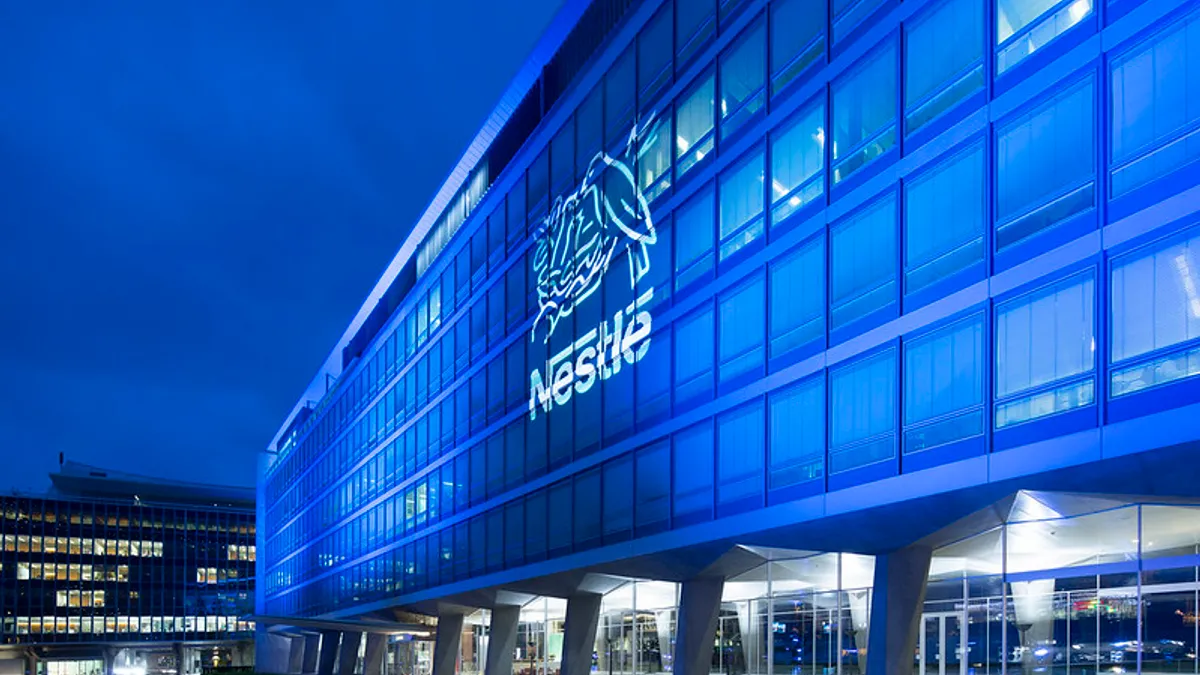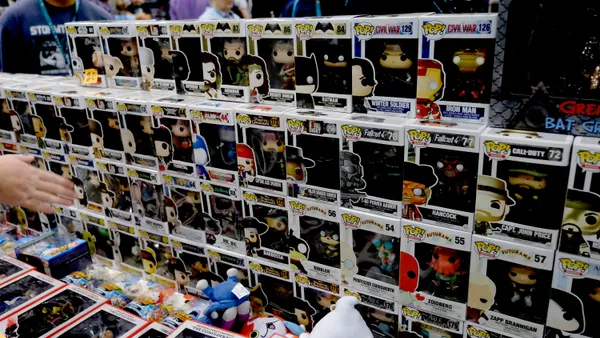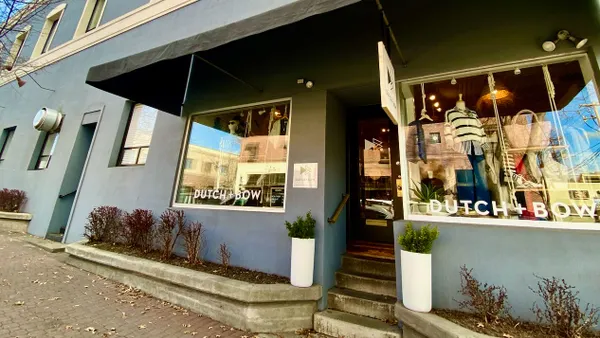Dive Brief:
- Nestlé plans to spend as much as 2 billion Swiss francs ($2.1 billion) to shift its packaging from virgin plastics to food-grade recycled plastics and increase its development of more sustainable solutions.
- The food giant said it will buy up to 2 million metric tons of food-grade recycled plastics and devote more than 1.5 billion Swiss francs ($1.6 billion) to pay a premium for these materials between now and 2025.
- The company also will launch a sustainable packaging venture fund with 250 million Swiss francs ($260 million) to invest in start-up companies focusing on these areas.
Dive Insight:
As Big Food feels consumer pressure to go green and hustles to meet previously pledged sustainability goals, Nestlé is ramping up its efforts with a big investment.
Food and beverage companies trying to reduce their plastic dependence have faced difficulty finding suitable recycled material to replace it. Although more companies have made sustainability commitments, developing sustainable packaging that keeps products fresh, endures temperature shifts and remains affordable has not been an easy feat. Putting in up to $2 billion to make the shift away from plastics could help Nestlé lead the way when it comes to the development of more sustainable solutions.
Two years ago, Nestlé promised by 2025 it will make all of its packaging recyclable or reusable, and aims to reduce use of virgin plastic by a third. Nestlé's plan to pay a premium rate for the recycled material could alleviate any future shortages of used plastics for food packaging by tempting new suppliers to get into the business.
This large investment could be a result of pressure Nestlé has been feeling. A recent Greenpeace report found CPG companies haven't shown significant progress on sustainability goals. Nestlé was found to be one of the worst plastic polluters in North and South America. Although other companies were named in Greenpeace's report, Nestlé is showing it wants to get off this list.
Nestlé's total plastic packaging usage in 2018 was 1.7 million metric tons, according to the company's website. Globally, the company currently uses just 2% recycled plastic, though usage is a bit higher for PET water bottles, which have 5% recycled content. Nestlé Waters, the company's bottled water division, is the biggest in the world with brands including S.Pellegrino and Poland Spring, so there is a lot of room for progress.
Nestlé's new research initiative for start-ups could also prove to be a good forward-looking move. Many start-ups and smaller firms have been working on sustainable packaging solutions on a smaller scale, and an investment from Nestlé could give them the ability to scale.
The company is already working on packaging projects. Nestlé opened a research site near its global R&D headquarters in Lausanne, Switzerland, to develop more sustainable solutions to packaging different food products. The company recently announced it would be offering its Yes snack bars in a recyclable paper wrapper. It also introduced paper packaging last year for its Nesquik flavored milk powder. And it's developing biodegradable water bottles and plans to use paper-based pouches for its Milo health drink.
Nestlé is not alone in these efforts. The Swiss company has been experimenting with water dispensers in an effort to shift to selling beverages without bottles, but so have PepsiCo and Danone. A number of other major food makers are also participating in recyclable packaging programs, including PepsiCo, Unilever, Mars, Coca-Cola, Mondelez and Danone. Additionally, packaging firms such as Tetra Pak have been working on more sustainable, paper-based options.
Sustainability is an increasingly important factor for companies as consumers and investors are looking for more brands to take the initiative on environmental issues. About 66% of consumers said they would pay more for products from brands committed to environmentally friendly practices, according to the Nielsen Global Corporate Sustainability Report. With the increasing demand for sustainable solutions, Nestlé's investment could be a good bet for the future.
















